10 Signs Your Bearded Dragon is Stressed: How to Help Them Relax
10 Signs Your Bearded Dragon is Stressed: How to Help Them Relax
Bearded dragons are fascinating creatures that make great pets. They’re docile, friendly, and easy to care for. However, like all animals, bearded dragons can experience stress, which can lead to health problems and unhappy behavior. In this guide, we’ll show you how to identify signs of stress in your bearded dragon and provide tips on how you can help them relax and be their happy, healthy selves.
What Causes Stress in Bearded Dragons?
Before we dive into the signs of stress in bearded dragons, let’s look at what can cause stress in these reptiles. Like many animals, bearded dragons are sensitive to changes in their environment. Even seemingly small disturbances can cause them to become anxious or stressed.
- New environments or living situations
- Sudden changes in lighting, temperature, or humidity
- Lack of proper nutrition or hydration
- Illness or injury
- Over-handling or rough handling
- Loud or disruptive noises
- Being housed with incompatible animals
- Dirty or overcrowded living conditions
10 Signs of Stress in Bearded Dragons
Now that you’re aware of some of the things that can cause stress in bearded dragons let’s move on to the tell-tale signs of stressful behavior. Here are ten signs to look out for:
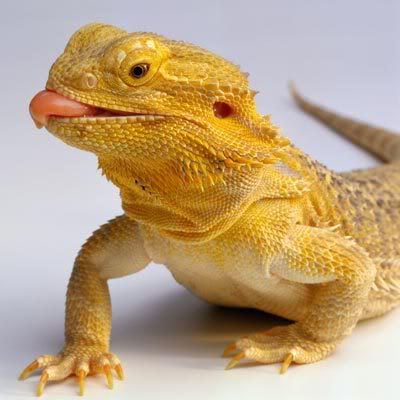
1. Lack of Appetite
If your bearded dragon is not eating as much as usual or not interested in food at all, this could be a sign of stress. This is especially true if you’ve recently made any changes to their habitat or feeding schedule.

2. Hiding
If your bearded dragon is hiding more than usual, this could be a sign that they’re stressed. This behavior is often accompanied by flattened posture, with the dragon resting close to the ground and hiding beneath rocks or other objects in their enclosure.
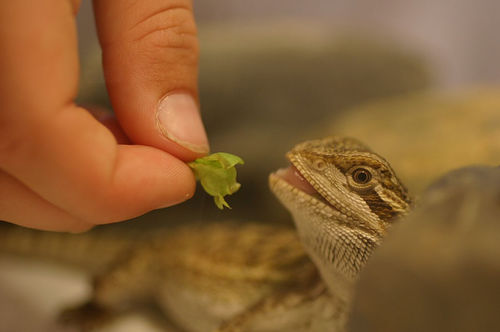
3. Glass Surfing
When bearded dragons are stressed, they may start exhibiting a behavior called “glass surfing.” In this behavior, the dragon will climb up and down the sides of their enclosure, constantly looking for a way out. It’s a sign that they’re feeling trapped and anxious.

4. Aggression
In extreme cases of stress, bearded dragons can become aggressive towards their owners or other animals. They may hiss, bite, or even lash out in an attempt to protect themselves from perceived danger. It’s important not to take this behavior personally, as it’s a sign that something is bothering your pet.
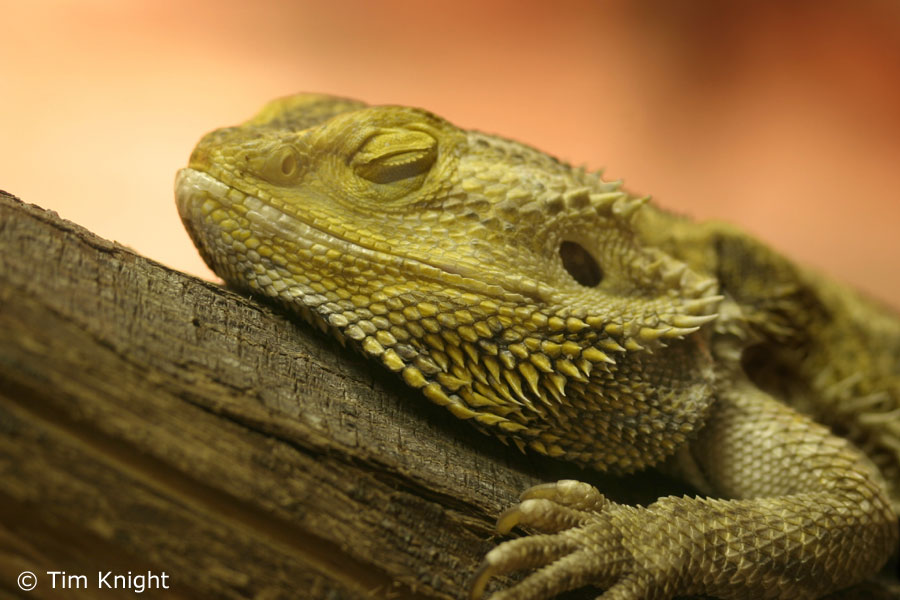
5. Preferring One Side of the Enclosure
If your bearded dragon is spending most of their time on one side of their enclosure, this could be a sign of stress. It’s often accompanied by a lack of movement and a hunched, tense posture.

6. Color Changes
Bearded dragons may change color when they’re stressed. For example, they may become darker or lighter than their usual shade. If you notice any sudden color changes in your dragon, it’s worth investigating further.
7. Rapid Breathing
If your bearded dragon is breathing more quickly than usual or seems to be struggling to catch their breath, this could be a sign of stress. It’s often accompanied by other physical symptoms, such as open-mouth breathing or wheezing.

8. Excessive Shedding
If your bearded dragon is shedding more frequently than usual or seems to be shedding excessively, this could be a sign of stress. Shedding is a natural process for these reptiles, but it can be disrupted by stress or illness.
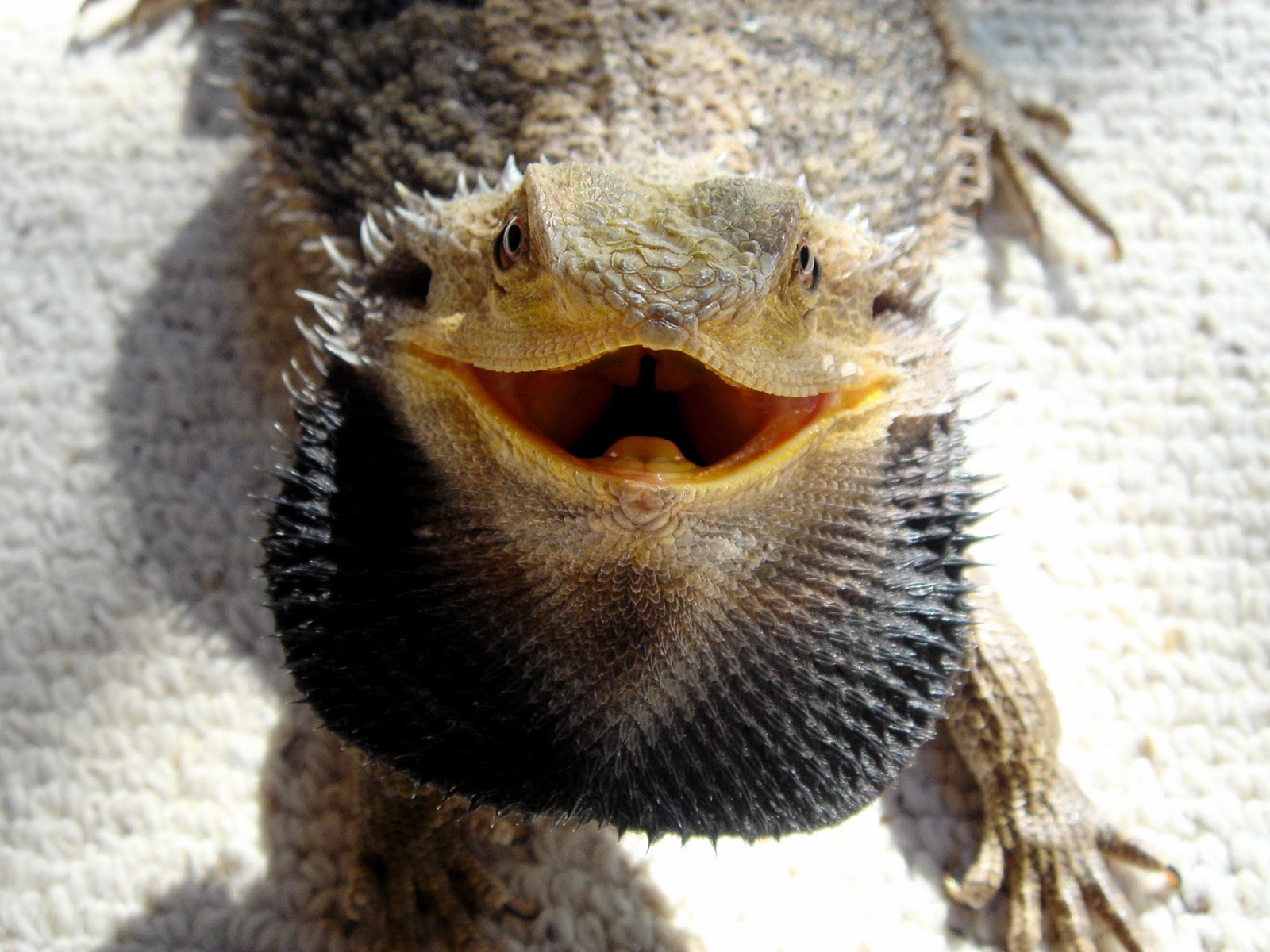
9. Lack of Movement
If your bearded dragon is lethargic, sleeping more than usual, or not moving around as much as usual, this could be a sign of stress. It’s often accompanied by other signs of stress, such as a lack of appetite or hiding behavior.

10. Increased Thirst
Bearded dragons may increase their water intake when they’re feeling stressed. This can be a sign that they’re dehydrated or that something is bothering them in their environment.
How to Help Your Bearded Dragon Relax
If you’ve noticed any of the signs of stress in your bearded dragon, don’t worry! There are several things you can do to help them relax and feel more comfortable in their environment.
1. Check Their Habitat
The first thing to do is to check their habitat. Make sure that their enclosure is the right size for their needs and that they have a comfortable basking spot and hiding place. Also, check that their lighting and temperature are correct and that their food and water are fresh and available.

2. Handle Them Gently
Bearded dragons can become stressed by over-handling or rough handling. Make sure to handle them gently and only when necessary, such as for cleaning or medical care. You should also avoid picking them up from above, as this can cause them to feel threatened and stressed.

3. Provide Enrichment
Bearded dragons, like all animals, benefit from enrichment. Provide them with toys, puzzles, and other objects that can keep them mentally stimulated and engaged. This can help them feel less stressed and more content in their environment.
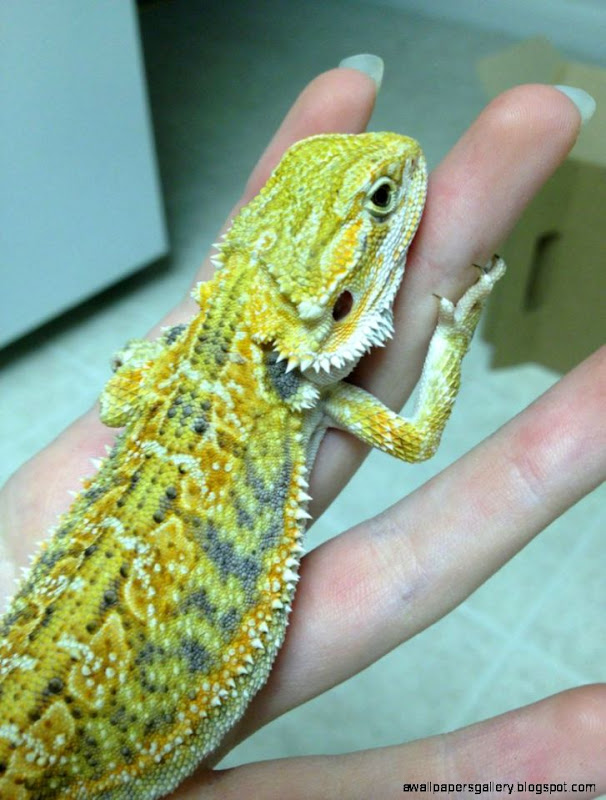
4. Reduce Noise and Disruptions
Loud or disruptive noises can stress out bearded dragons. Try to minimize noise in their environment, especially during their sleeping hours. You can also cover their enclosure at night to provide a quieter and more peaceful sleeping environment.
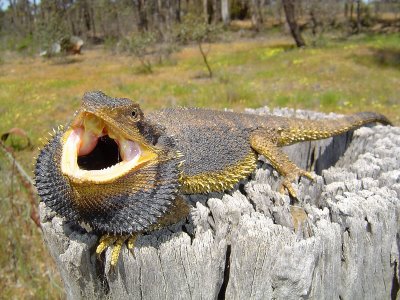
5. Give Them Space and Time
Sometimes, bearded dragons just need space and time to themselves. Allow them alone time in their enclosure, and avoid disturbing them during this time. This can help them feel less stressed and more comfortable in their environment.
When to Seek Veterinary Care
If your bearded dragon is showing signs of stress for an extended period, it’s essential to seek veterinary care. A vet can help determine the cause of the stress and provide treatment to help your pet feel more comfortable and healthy.
Conclusion
By knowing the signs of stress in bearded dragons, you can help your pet live a happier and healthier life. Follow the tips we’ve provided to help your bearded dragon relax and feel more comfortable in their environment. And remember, always seek veterinary care if you’re concerned about your pet’s health or wellbeing.
